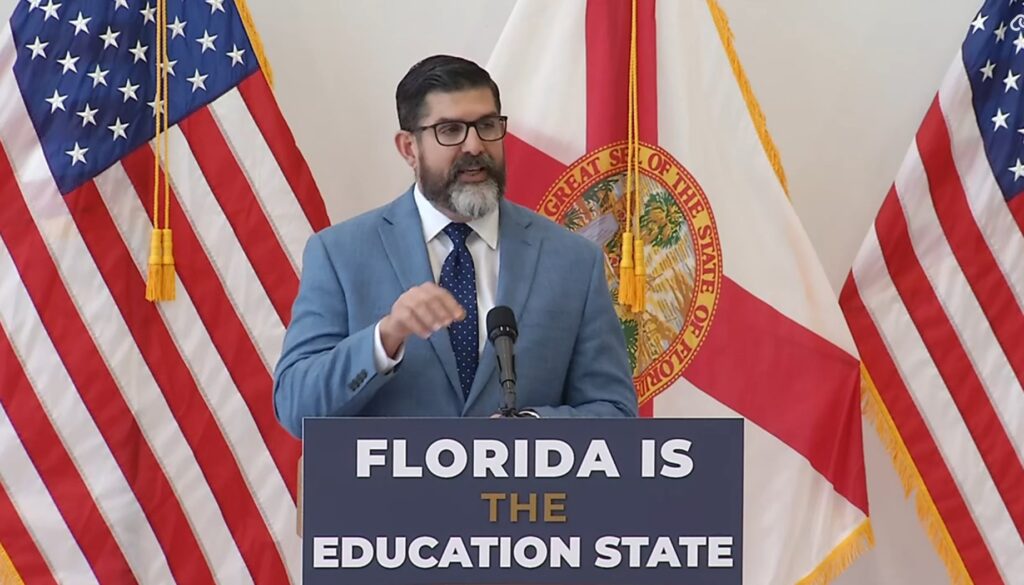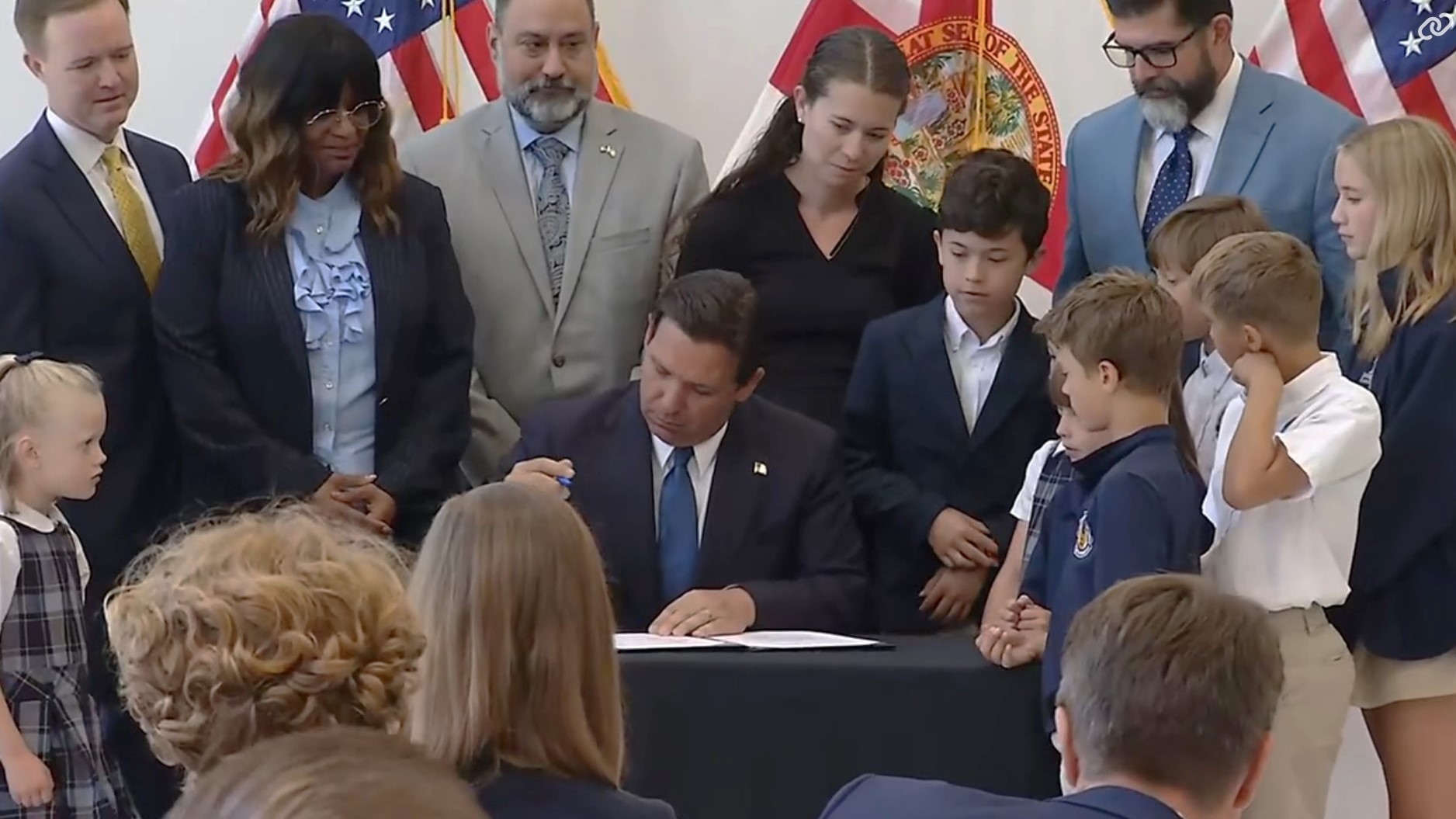Appearing in Jacksonville, Gov. Ron DeSantis signed a bill Tuesday that will limit challenges to schoolbooks and ease the process for charter schools to take over struggling traditional public schools.
Joined by Education Commissioner Manny Diaz Jr., DeSantis signed the bill at Jacksonville Classical Academy on Forest Street. It was his second bill signing at a Jacksonville classical school is less than a month.
The wide-ranging bill (HB 1285) covered a variety of topics. It will:
- Limit the number of books a person can challenge if they are not a parent of a child in the school system.
- Make it easier for charter schools to take over failing traditional schools.
- Create a classical education teaching certificate.
- Require school districts and charter schools to give 11th and 12th graders the opportunity to take an Armed Services Vocational Aptitude Battery test. Students will be allowed to consult with a military recruiter.
- Require colleges and universities to let students work their way through school.
In term of schoolbooks, more than half of the 1,218 book objections filed during the 2022-2023 school year occurred in two counties — Clay and Escambia, according to a Senate staff analysis. The challenges came after the Republican-controlled Legislature and DeSantis approved measures that ramped up scrutiny of library books and classroom materials, creating highly publicized disputes about removing books.
The new law will require that any “resident of the county who is not the parent or guardian of a student with access to school district materials may not object to more than one material per month.”
DeSantis was questioned about one Clay County resident who filed most of the book objections there in recent years. Diaz stepped in to answer the question.

“This (bill) is designed to allow parents to have a say, allow parents to challenge books that shouldn’t be in the school,” Diaz said. “Anyone who creates a cottage industry of going around the state and just creating challenges just to gunk up the system and put school systems in arrears as far as reviewing these books, that person won’t be able to do it anymore.”
The new limit will help school districts in reviewing objections, Diaz said.
“That will make the process easier for the district to get through, because you can actually review the book in a timely manner,” Diaz said.
During a media event Monday, DeSantis said some people who filed mass objections to books made a “mockery” of the process, the News Service of Florida reported.
“The idea that someone can use the parents’ rights and the curriculum transparency to start objecting to every single book, to try to make a mockery of this, is wrong,” DeSantis said during a news conference at a school in Pensacola. “And you had examples where books were put under review that are just normal books that have been in education for many many years.”
Meanwhile, parts of the bill related to underperforming public schools will “add some oomph” to the state’s process of allowing charter schools to take over operations, DeSantis said.
Under state law, if a school receives consecutive D or F grades based on various performance criteria, the school is given two years to improve to a C grade under what’s known as a “turnaround plan.” If the school’s grade doesn’t make such an improvement, one option is for the school to close and reopen as a charter school.
The bill signed Tuesday will speed up the process of converting traditional public schools to charter schools under such circumstances, in part by giving districts a deadline to execute charter contracts. For schools reopening as charters, districts would have to execute contracts by Oct. 1 of the following school year, and charter organizations would assume “full operational control” by July.
The law also will direct state education officials to create a “classical education teaching certificate.” The certificates would be valid only at classical schools, and to obtain them applicants would have to meet most — but not all — requirements that traditional public school teachers would have to meet.
Applicants for classical education certificates would be exempt from meeting requirements that they “demonstrate mastery of general knowledge,” “demonstrate mastery of subject area knowledge,” or demonstrate “mastery of professional preparation” and education competence.
“We have such a growth in the classical space, and those classical teachers have to be different,” Diaz said. “And so, we want to be able to have certification for those teachers that are going into a classical model where the most important piece is, yes, they have a license, but what is the professional development attached to that?”
Information from the News Service of Florida was used in this report.







